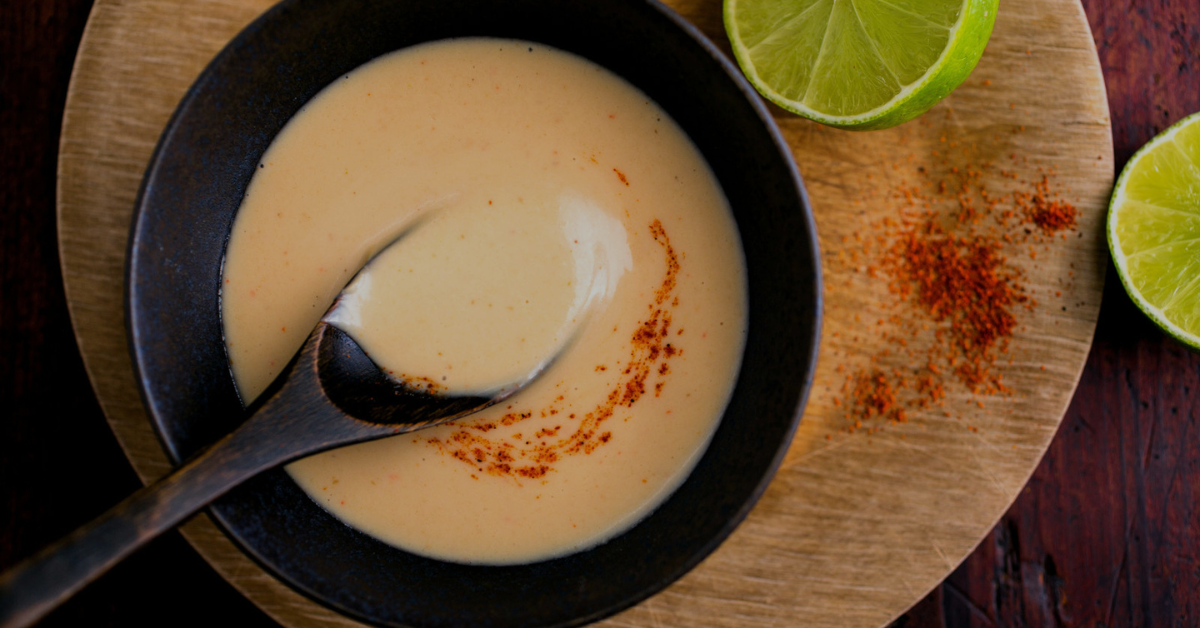Approved By » Esther Howard (Nutritionist) & Dr. Jane Cooper (Expert Dietitian)
When it comes to adding a burst of flavor to your salads or dishes, ginger dressing has become a popular choice. But beyond its tangy taste, many wonder if this condiment offers any nutritional benefits. So, is ginger dressing good for you?
In this article, we’ll dive into the potential health advantages of ginger dressing and explore its nutritional composition to determine if it’s a good addition to your diet.
What is Ginger Dressing?
Before we delve into the potential benefits, let’s first understand what ginger dressing is.
This flavorful dressing is typically made by combining ginger root, vinegar (such as rice vinegar or apple cider vinegar), oil (like sesame or olive oil), and various seasonings.
The ginger root is the star ingredient, providing a distinct warmth and pungency to the dressing.
Is Ginger Dressing Good for You?
Yes, ginger dressing can be good for you in moderation due to the potential health benefits of ginger, such as its anti-inflammatory and antioxidant properties, but it should be consumed in moderation due to its calorie and fat content.
The Potential Health Benefits of Ginger Dressing
While ginger dressing may be primarily used for its flavor, the presence of ginger root as a key ingredient brings along several potential health benefits.

Here are some notable advantages of incorporating ginger dressing into your diet:
Anti-Inflammatory Properties
Ginger is renowned for its anti-inflammatory properties, thanks to the presence of compounds like gingerol and shogaol.
These compounds have been studied for their ability to reduce inflammation in the body, which can help alleviate conditions like arthritis, joint pain, and muscle soreness.
Digestive Aid
Ginger has long been used as a natural remedy for various digestive issues, such as nausea, indigestion, and bloating.
The compounds in ginger can help stimulate digestion and promote the production of digestive enzymes, making ginger dressing a potential aid in improving overall digestive health.
Potential Cancer-Fighting Properties
Some studies have suggested that the compounds in ginger, particularly gingerol, may possess cancer-fighting properties.
While more research is needed in this area, ginger dressing can be a tasty way to incorporate this potentially beneficial ingredient into your diet.
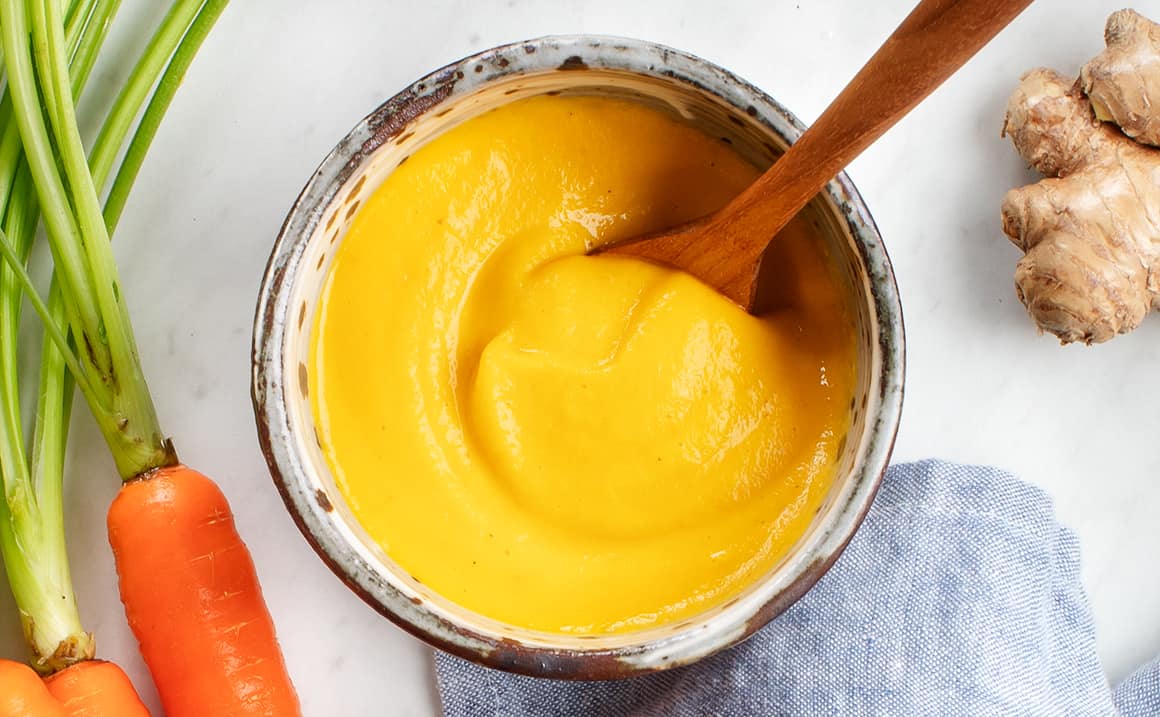
Antioxidant Properties
Ginger is rich in antioxidants, which can help neutralize harmful free radicals in the body and protect against oxidative stress. Incorporating ginger dressing into your meals can contribute to your overall antioxidant intake.
Nutritional Value of Ginger Dressing
To determine if ginger dressing is a nutritious addition to your diet, let’s take a closer look at its typical nutritional composition:
Calories and Macronutrients
The calorie content and macronutrient breakdown of ginger dressing can vary depending on the specific recipe and ingredients used.
However, most ginger dressings are relatively low in calories, with a 2-tablespoon serving containing around 80-120 calories. The majority of these calories come from the oil used in the dressing, contributing to its fat content.
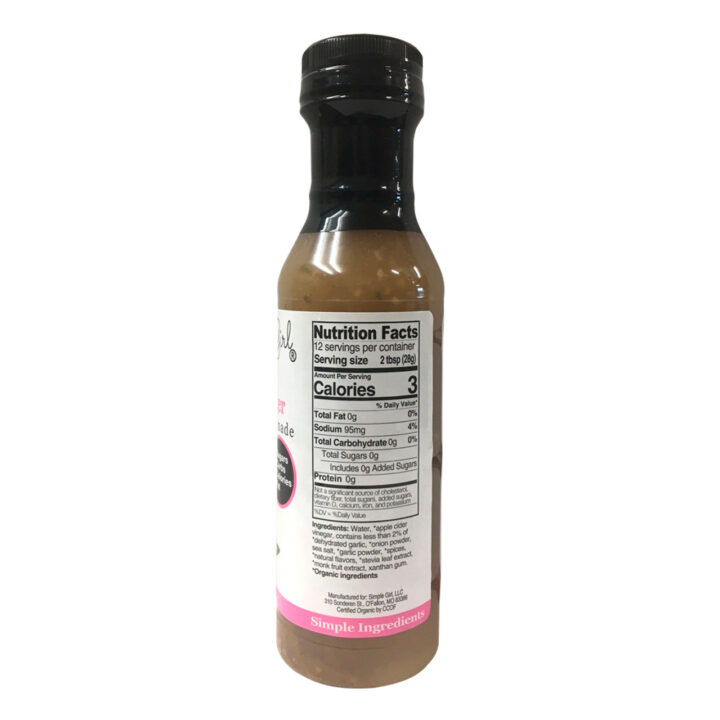
Micronutrients
While ginger dressing may not be a significant source of vitamins and minerals, it does provide some valuable micronutrients:
- Vitamin C: Ginger is a good source of vitamin C, an essential antioxidant that supports immune function and skin health.
- Manganese: Ginger contains manganese, a mineral that plays a role in bone health, metabolism, and antioxidant defense.
- Potassium: Depending on the ingredients used, ginger dressing may contain potassium, which is important for muscle function and healthy blood pressure.
Note: The amount of vitamins and minerals will vary depending on the specific recipe.
Potential Drawbacks
It’s important to note that while ginger dressing can offer potential health benefits, it should be consumed in moderation due to its fat and calorie content.
Additionally, some ginger dressings may contain added sugars or preservatives, which can diminish their overall nutritional value.
Tips for Incorporating Ginger Dressing into Your Diet
If you’re convinced that ginger dressing is a tasty and potentially beneficial addition to your meals, here are some tips for incorporating it into your diet:
Salad Dressings
One of the most obvious ways to enjoy ginger dressing is by using it as a salad dressing.
Drizzle it over mixed greens, grilled vegetables, or protein-rich salads for a burst of flavor and potential health benefits.
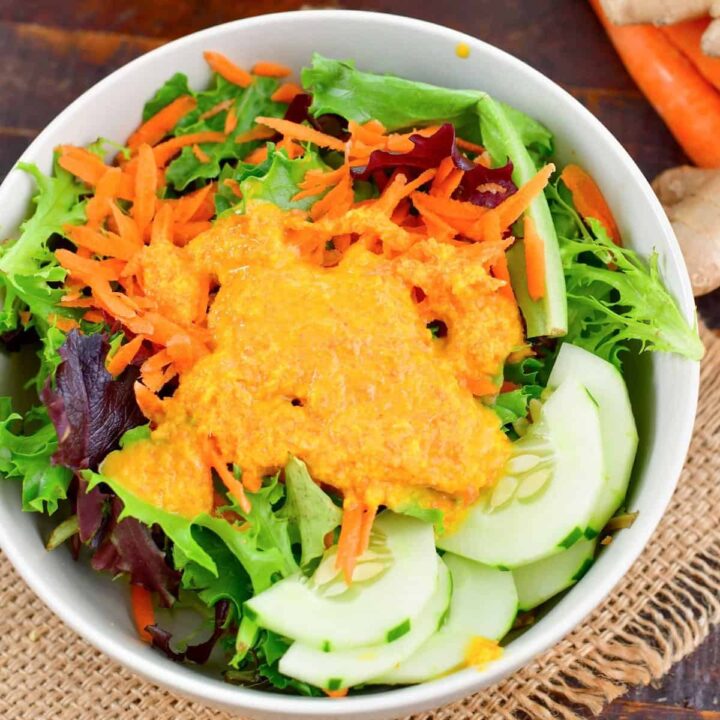
Marinades and Glazes
Ginger dressing can also be used as a marinade for meats, fish, or tofu, imparting its unique flavor and potentially tenderizing the protein.
Additionally, you can use it as a glaze for roasted or grilled dishes.

Dipping Sauce
For a healthier alternative to traditional dipping sauces, try using ginger dressing as a dip for fresh vegetables, spring rolls, or even baked chips or crackers.
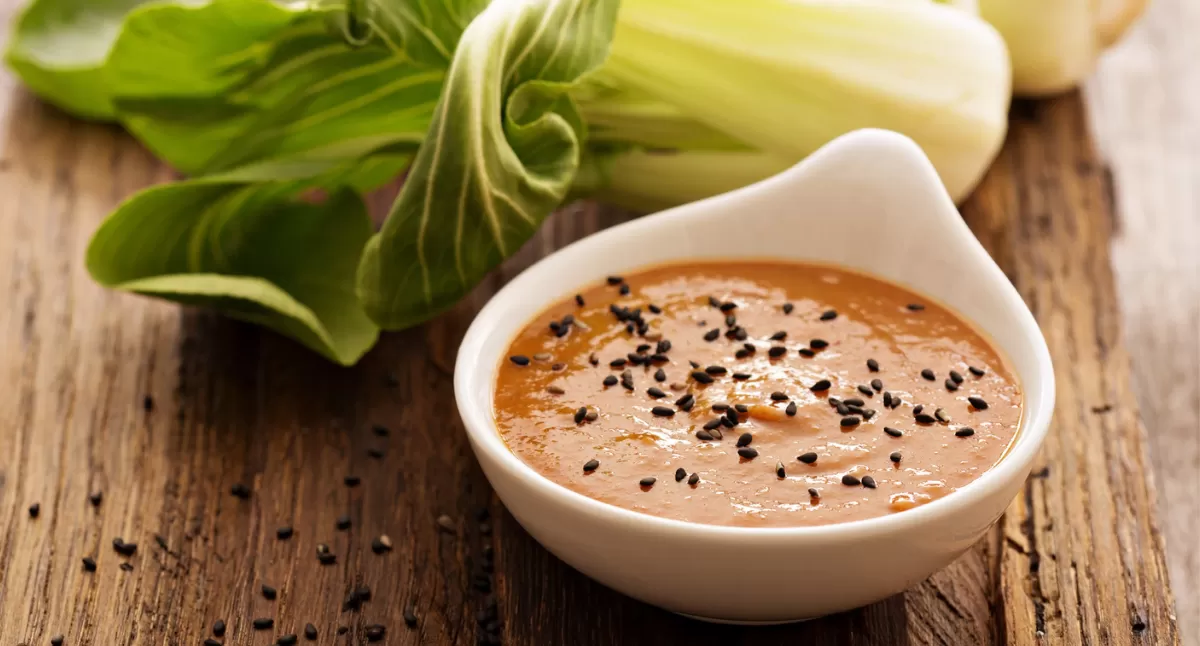
Homemade Dressings
To ensure you’re getting the most nutritional value from your ginger dressing, consider making it at home using fresh ginger root, high-quality oils, and minimal added sugars or preservatives.
Conclusion
In conclusion, ginger dressing can be a flavorful and potentially beneficial addition to your diet.
While it may not be a nutrient powerhouse on its own, the presence of ginger root brings along potential anti-inflammatory, digestive, and antioxidant properties.
However, it’s important to consume ginger dressing in moderation and be mindful of its calorie and fat content.
By incorporating it into salads, marinades, dips, and homemade dressings, you can enjoy the zesty flavor of ginger while potentially reaping some health benefits.

